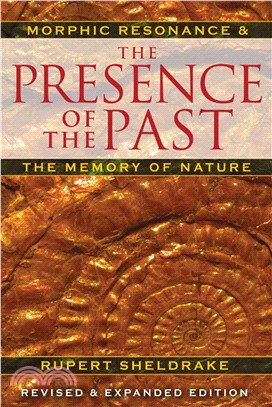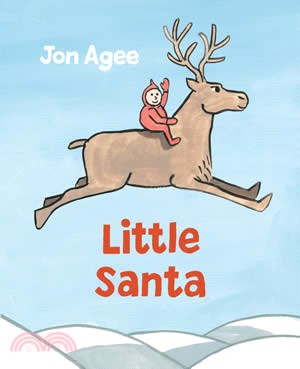The Presence of the Past ─ Morphic Resonance and the Memory of Nature
商品資訊
ISBN13:9781594774614
替代書名:The Presence of the Past
出版社:Inner Traditions
作者:Rupert Sheldrake
出版日:2012/03/26
裝訂/頁數:平裝/458頁
規格:22.9cm*15.2cm*3.2cm (高/寬/厚)
定價
:NT$ 948 元海外有庫存,下單後進貨(到貨天數約30個工作天)
下單可得紅利積點:28 點
商品簡介
作者簡介
相關商品
商品簡介
Explains how self-organizing systems, from crystals to human societies, share collective memories that influence their form and behavior
• Includes new evidence and research in support of the theory of morphic resonance
• Explores the major role that morphic resonance plays not just in animal instincts and cultural inheritance but also in the larger process of evolution
• Shows that nature is not ruled by fixed laws but by habits and collective memories
In this fully revised and updated edition of The Presence of the Past, Cambridge biologist Rupert Sheldrake lays out new evidence and research in support of his controversial theory of morphic resonance and explores its far-reaching implications in the fields of biology, chemistry, physics, psychology, and sociology.
His theory proposes that all self-organizing systems, from crystals to human society, inherit a collective memory that influences their form and behavior. This collective memory works through morphic fields, which organize the bodies of plants and animals, coordinate the activities of brains, and underlie conscious mental activity. Sheldrake shows how all human beings draw upon and contribute to a collective human memory and that even our individual recollections depend on morphic resonance rather than physical storage in the brain. He explores the major role that morphic resonance plays not just in animal instincts and cultural inheritance, such as religion and ritual, but also in the larger process of evolution, which Sheldrake shows to be more an interplay of habit and creativity than a mere “survival of the fittest.”
Offering a replacement for the outdated, mechanistic worldview that has dominated biology since the nineteenth century, Sheldrake’s new understanding of life, matter, and mind shows that rather than being ruled by fixed laws, nature is essentially habitual. And because memory is inherent in nature, he explains, in order to survive successfully for generations to come, we will have to give up our old habits of thought and adopt new ones: habits that are better adapted to life in a world living in the presence of the past--as well as the presence of the future.
• Includes new evidence and research in support of the theory of morphic resonance
• Explores the major role that morphic resonance plays not just in animal instincts and cultural inheritance but also in the larger process of evolution
• Shows that nature is not ruled by fixed laws but by habits and collective memories
In this fully revised and updated edition of The Presence of the Past, Cambridge biologist Rupert Sheldrake lays out new evidence and research in support of his controversial theory of morphic resonance and explores its far-reaching implications in the fields of biology, chemistry, physics, psychology, and sociology.
His theory proposes that all self-organizing systems, from crystals to human society, inherit a collective memory that influences their form and behavior. This collective memory works through morphic fields, which organize the bodies of plants and animals, coordinate the activities of brains, and underlie conscious mental activity. Sheldrake shows how all human beings draw upon and contribute to a collective human memory and that even our individual recollections depend on morphic resonance rather than physical storage in the brain. He explores the major role that morphic resonance plays not just in animal instincts and cultural inheritance, such as religion and ritual, but also in the larger process of evolution, which Sheldrake shows to be more an interplay of habit and creativity than a mere “survival of the fittest.”
Offering a replacement for the outdated, mechanistic worldview that has dominated biology since the nineteenth century, Sheldrake’s new understanding of life, matter, and mind shows that rather than being ruled by fixed laws, nature is essentially habitual. And because memory is inherent in nature, he explains, in order to survive successfully for generations to come, we will have to give up our old habits of thought and adopt new ones: habits that are better adapted to life in a world living in the presence of the past--as well as the presence of the future.
作者簡介
Rupert Sheldrake, Ph.D., is a former research fellow of the Royal Society and former director of studies in biochemistry and cell biology at Clare College, Cambridge University. He is the author of more than 80 technical papers and articles appearing in peer-reviewed scientific journals and 10 books, including Dogs That Know When Their Owners Are Coming Home, Morphic Resonance, and The Rebirth of Nature. He lives in London.
主題書展
更多
主題書展
更多書展今日66折
您曾經瀏覽過的商品
購物須知
外文書商品之書封,為出版社提供之樣本。實際出貨商品,以出版社所提供之現有版本為主。部份書籍,因出版社供應狀況特殊,匯率將依實際狀況做調整。
無庫存之商品,在您完成訂單程序之後,將以空運的方式為你下單調貨。為了縮短等待的時間,建議您將外文書與其他商品分開下單,以獲得最快的取貨速度,平均調貨時間為1~2個月。
為了保護您的權益,「三民網路書店」提供會員七日商品鑑賞期(收到商品為起始日)。
若要辦理退貨,請在商品鑑賞期內寄回,且商品必須是全新狀態與完整包裝(商品、附件、發票、隨貨贈品等)否則恕不接受退貨。
























